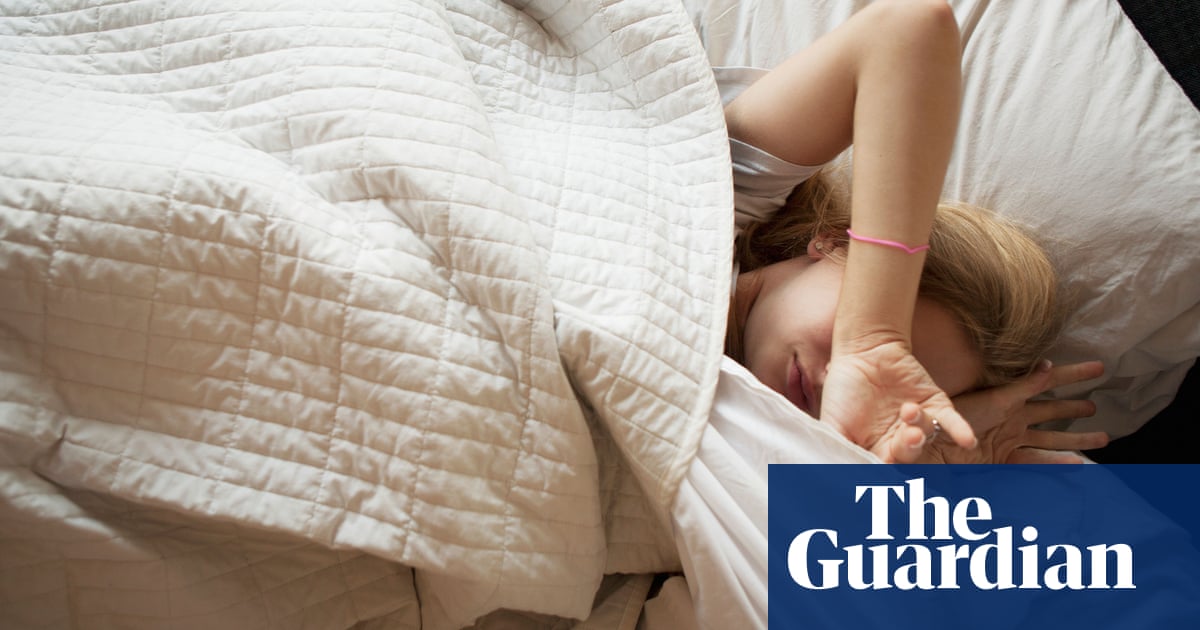Teenagers who go to bed earlier and sleep for longer than their peers tend to have sharper mental skills and score better on cognitive tests, researchers have said.
A study of more than 3,000 adolescents showed that those who turned in earliest, slept the longest, and had the lowest sleeping heart rates outperformed others on reading, vocabulary, problem solving and other mental tests.
The researchers expected teenagers with healthy sleeping habits to score better than those who slept poorly, but were surprised at the impact that even small differences in sleep made.
“We think that it’s the sleep driving the better cognitive abilities, in part because we consolidate our memories during sleep,” said Barbara Sahakian, a professor of clinical neuropsychology at theUniversity of Cambridge.
A good night’s rest has long been linked to better mental performance, but researchers are still teasing apart what happens in adolescence when crucial brain development coincides with a shift towards later bedtimes and less sleep overall.
Sahakian’s team and researchers at Fudan University in Shanghai analysed data from 3,222 young people in the adolescent brain cognitive development study, the largest long-term investigation into brain development and child health in the US. Those who took part had brain scans, cognitive tests, and tracked their sleep using Fitbits.
Even those with the best sleeping habits got less sleep than experts recommend, the study found. According to the American Academy of Sleep Medicine, 13- to 18-year-olds should haveeight to 10 hourssleep per night.
The teenagers fell into three distinct groups. The first, about 39%, went to bed the latest and woke the earliest, sleeping on average seven hours and 10 minutes a night. The second group, about 24%, slept for seven hours and 21 minutes on average. The third, about 37%, went to bed the earliest, slept the longest, and had the lowest sleeping heart rates. They slept about seven hours and 25 minutes.
While there were no meaningful differences in the educational achievements of the different groups, those in group three scored highest on cognitive tests, followed by group two, and group one scored the worst. Brain scans showed that those in group three had the largest brain volumes and best brain functions. Details are published inCell Reports.
Sahakian said it was “surprising” that minor differences in sleep had such an impact, adding: “It suggests that small differences in sleep amounts accrue over time to make a big difference in outcomes.”
For teenagers who want to improve their sleep and boost mental skills, Sahakian recommends regular exercise to help with sleep, and not using mobile phones or computers late in the evening.
Colin Espie, a professor of sleep medicine at the University of Oxford, who was not involved in the study, said: “One of the consequences of having highly evolved brains, that can perform complex tasks, is that as humans we are particularly dependent on sleep, not least in the developing years.
“As this research shows, falling asleep late and getting less sleep is problematic. No doubt this is exacerbated on school days when young people need to get up relatively early for school, and play catchup on the weekends – a phenomenon known as social jet lag.”
He added: “We would do well as a society to place more emphasis on sleep by, for example, incorporating more sleep health content into personal and social education at secondary school.” Oxford’s Teensleep project proposes ways to help teenagers improve their sleep health.
Gareth Gaskell, a professor of psychology at the University of York, welcomed the focus on early adolescence. “I would like to see more in the way of intervention studies during adolescence so we can find out how to help adolescents that might have suboptimal sleep patterns. Often, quite simple changes can be made to the bedtime routine, for example around screen use, to improve the timing and duration of sleep.”
